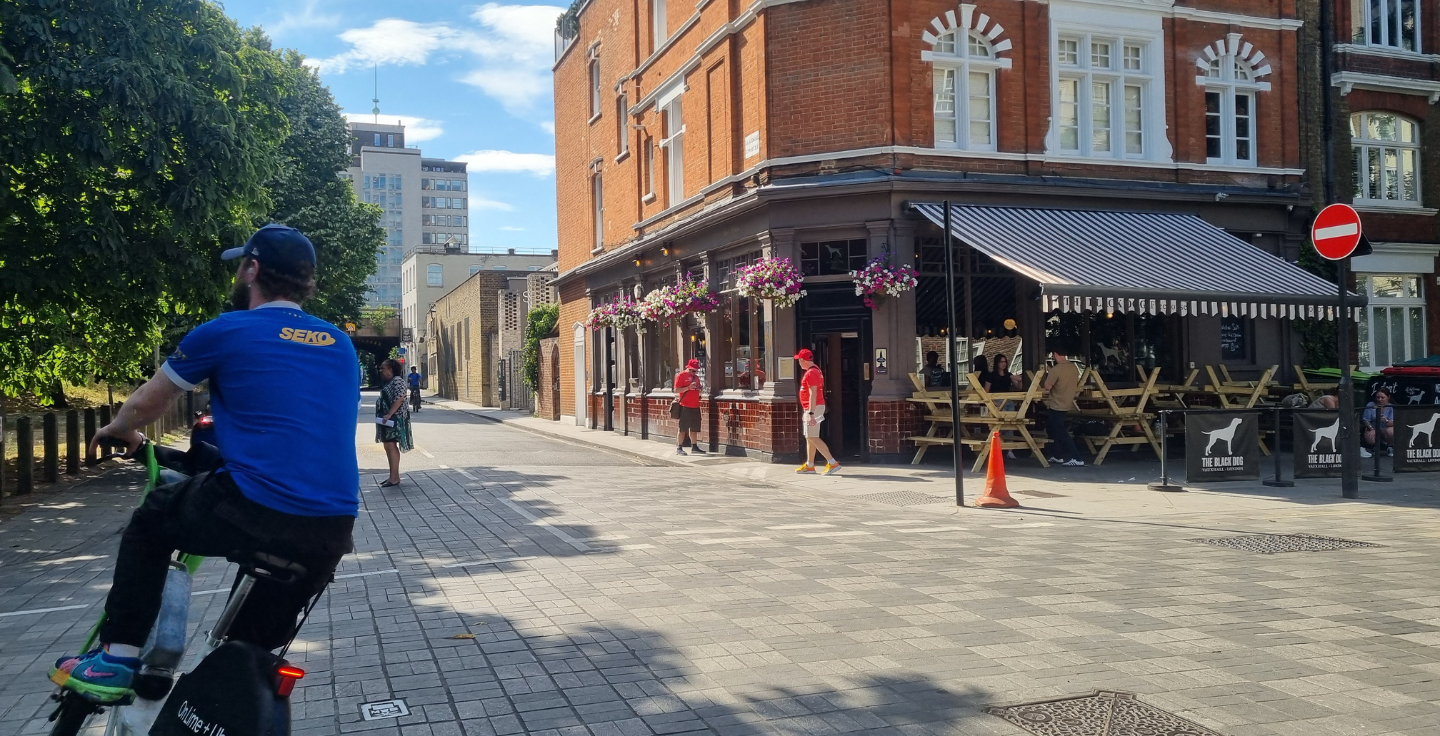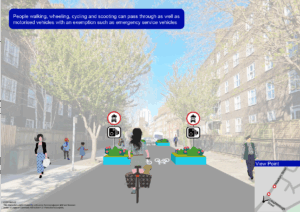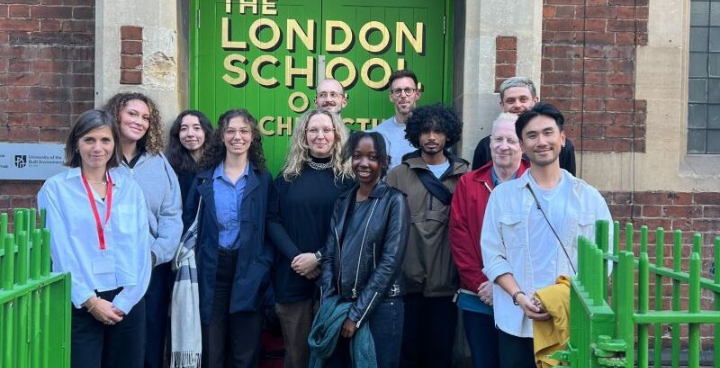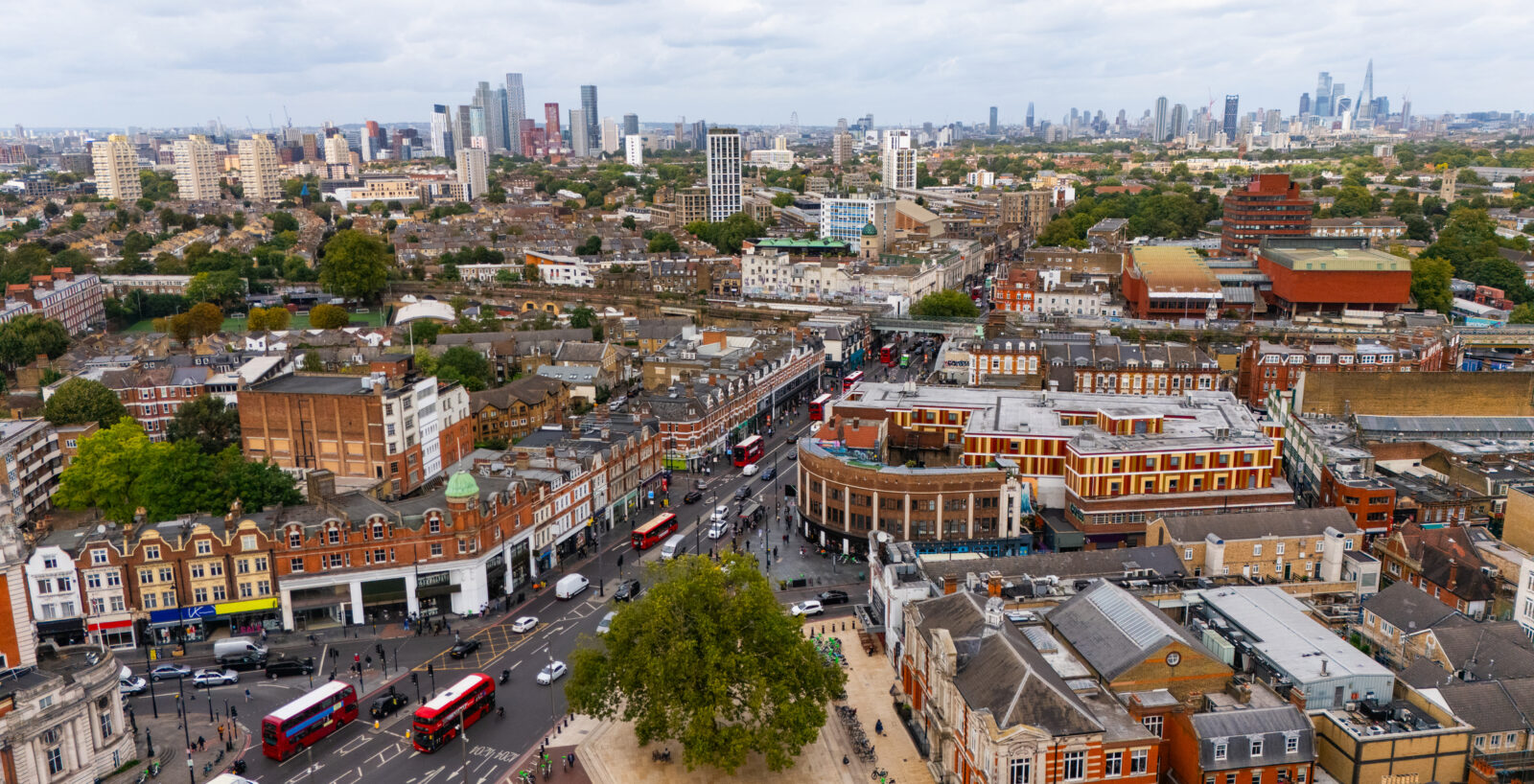
A new trial aims to make the community around the iconic Vauxhall Pleasure Gardens safer, cleaner and greener, under council proposals for a new Healthy Neighbourhood.
Lambeth Council has announced plans to introduce a trial Healthy Neighbourhood around Vauxhall Pleasure Gardens which aims to make local streets safer, cleaner and easier for walking, wheeling, cycling and scooting. The scheme, which is expected to be introduced on 19 November would limit cut-through traffic between Albert Embankment, Kennington Road, Black Prince Road, and Kennington Lane, enabling safer journeys and making it more pleasant to spend time in the area, which has historic roots as a place for entertainment and leisure dating back to 1661.
In more recent times, the area has grown famous for its large LGTBQ+ community and nightlife, which the scheme aims to support in conjunction with other initiatives, including the council’s Nighttime Economy Strategy, published later this month. The area also includes parts of Lambeth’s Low Line – the streets and public spaces along the line of railway arches running from Nine Elms to Waterloo, with exciting designs currently under development.
The Healthy Neighbourhood will build on the area’s excellent public transport links and high levels of cycling and walking, with just 3 in 10 local households owning a car. Despite this, the busy main roads running through the neighbourhood carry tens of thousands of vehicles a day, with thousands choosing to turn through the area’s small local streets, which were not designed for large amounts of passing traffic. Speeding is also a significant issue, with traffic counts showing that almost 1 in 3 vehicles on some local streets are breaking the limit. Other Healthy Neighbourhoods have achieved a 75% reduction in speeding after introduction.
Councillor Rezina Chowdhury, Cabinet Member for Sustainable Lambeth and Clean Air said:
“Vauxhall Gardens is an iconic part of our borough, and we hope to make the area an even better place to live, spend time and travel through for pedestrians and cyclists with these improvements.
The vast majority of locals don’t own a car and over 90% live in flats or apartments. There are twice as many students in the area as people who drive to work. This is a neighbourhood with huge potential to benefit from a scheme like this.
Over 2 million people live within a 30-minute walk or cycle of Vauxhall, a Healthy Neighbourhood would make travelling to and through the area sustainably a safer and more pleasant experience for all – which should be a boost to the local economy, day and night”
A trial scheme, following community engagement
Following community consultation on the scheme between September 2024 and August 2025, the council is proposing to introduce the Healthy Neighbourhood on a trial basis under an Experimental Traffic Management Order, with locals encouraged to share their feedback on the scheme during the first six months of the trial period, which could last for up to 18 months.
Under the proposals, traffic filters – which prevent most motor vehicles from driving through – would be introduced on Tyers Street, Vauxhall Street, Newburn Street, Sancroft Street and St Oswald’s Place. A new banned left turn is also proposed on Tinworth Street into Albert Embankment. Local traffic and deliveries will still be able to reach every address, though some journeys may take a different route. Emergency services, SEN transport and some other vehicles will be allowed to pass through filters.
In line with Lambeth’s award-winning Kerbside Strategy, some local parking spaces will be repurposed for greener, more sustainable uses – including additional cycle parking, new planting, business loading bays and two disabled parking bays.
Developers investing in the local neighbourhood
With thousands of homes built or in development in Vauxhall, the council has been working to ensure local street designs support new residents to use travel sustainably. The scheme will be entirely funded by developer contributions and fits with ongoing council work to reinvest and share the benefits of development with local communities.
Decision and next steps
A decision report has been published setting out the detail of the scheme and, subject to a formal call-in period, it would be implemented from Wednesday 19 November.
Further details of the scheme will be shared with residents ahead of its introduction, including a letter to local homes and businesses and online via the council’s engagement site.
The council will monitor the impact of the scheme and consider feedback on it, including ‘objections’ made to the Experimental Traffic Management Order, the legal process under which the trial is being introduced.
Notes to editors
- The trial is being introduced using a legal process called an Experimental Traffic Management Order (ETMO). An ETMO allows the council to trial changes, such as traffic filters, for up to 18 months. The first 6 months of the trial is an ‘objection period’ during which objections can be made to the scheme. Any scheme changes made during the trial period would trigger a further 6 month objection period.
- Traffic counts showed 31% of the 788 motor vehicles passing down Vauxhall Street each day were speeding, with 21% of the 1,863 vehicles using Tyers Street also breaking the limit.
- Some vehicles, including emergency services, are exempt from the filters. The vehicles that can drive through a filter are: emergency services, Blue Badge holders (on application) and pedal cycles, rapid response healthcare providers, Category 1 Responders under the Civil Contingencies Act 2004, refuse collection vehicles and SEN transport vehicles – on application. The council’s dispensation application process for Blue Badge holders and SEND vehicles is published on its website.
- The council’s Healthy Neighbourhood Delivery Framework outlines how we develop and refine designs, from gathering data and exploring feasibility to testing layouts and making improvements based on resident and stakeholder feedback.




